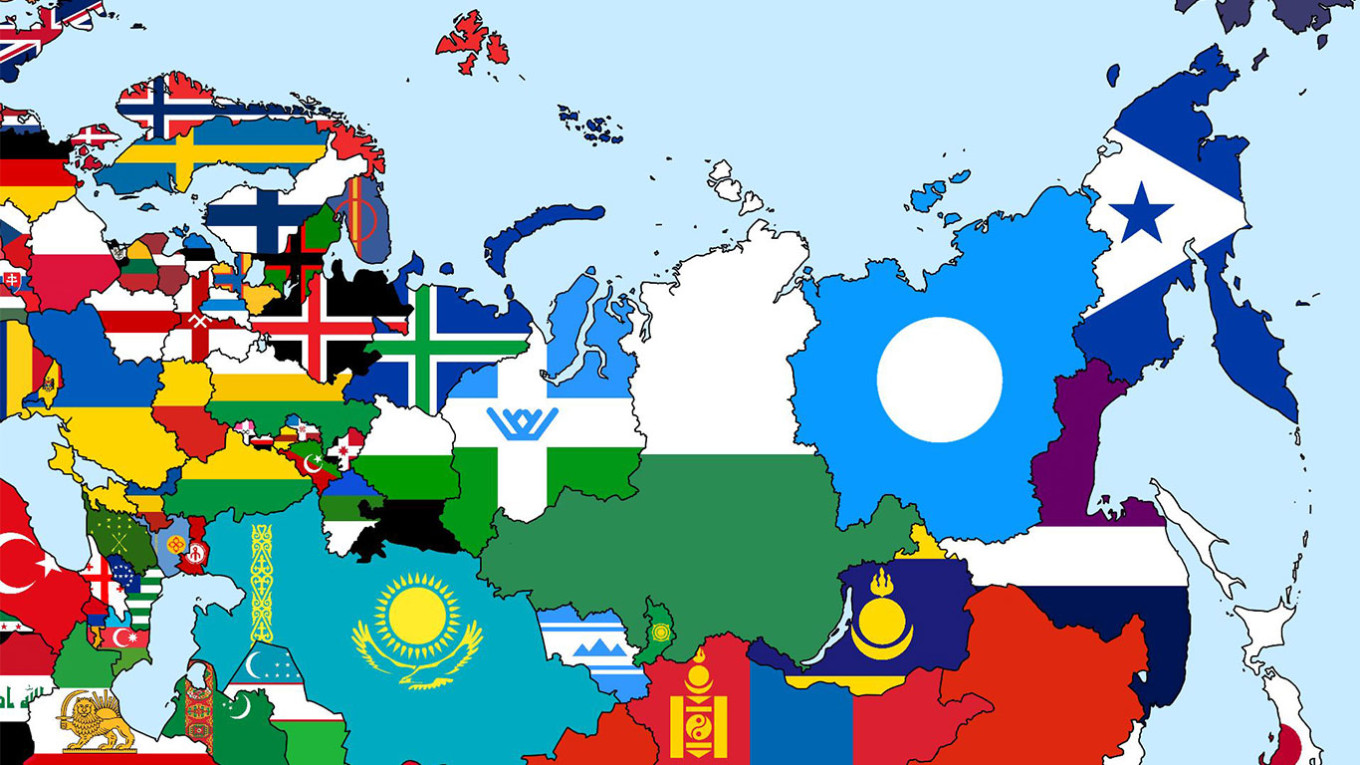
“Freaks” was how Leonid Volkov — the right-hand man of jailed opposition leader Alexei Navalny — recently described activists who demand Russia’s decolonization. His description came in response to similar comments by President Vladimir Putin in which the president also lambasted those seeking greater autonomy for Russia’s national republics.
It’s remarkable how Putin and a representative of his main political opponent — Navalny — can see eye to eye. Both have nothing but scorn for decolonial activists. While Putin palms the movement off as a plot orchestrated by Western intelligence and bluffs about the alleged unity of the Russian people, Volkov belittles decolonial activists as a laughingstock, suggesting that their aspirations for independence only foster the regime’s rhetoric about the West allegedly seeking the dismemberment of Russia.
As Russia's most prominent opposition force, which aspires to represent the whole nation, Navalny’s supporters love to repeat the thesis that the war in Ukraine is “Putin’s war” and that the Russian people are its victims. Maria Pevchikh, the chairwoman of Navalny’s Anti-Corruption Foundation (FBK) board of directors, has even equated the regime’s authoritarianism with domestic abuse. According to this logic, however, Volkov and some of Navalny’s supporters are guilty of victim-blaming when they accuse ethnic minority activists of provoking the regime’s wrath.
In reality, Volkov expressed an opinion that is common within Russia’s liberal opposition, which does not take the decolonization movement seriously and belittles it through insults. The fact is that liberals who oppose Putin continue to support Moscow’s hegemony over ethnic non-Russians from the national republics.
By claiming that a positive future for Russia can be achieved by simply removing Putin, the liberal opposition overlooks the imperial-colonial foundation of the Russian state. While tycoon and Putin critic Mikhail Khodorkovsky, for example, claims to support the real (rather than fictitious) federalization of Russia, he has also said that he would fight to stop the North Caucasus republics seeking independence.
Of course, it’s naive to think that any state, democratic or authoritarian, would permit the secession of its territories. However, this does not mean Russia’s ethnic minorities should be forbidden from broaching the topic or demanding genuine representation.
Rather than integrating the voices of ethnic minority activists into their wider agenda, the comparatively better-resourced liberal opposition devalues, ridicules and offends them. In doing so, they demonstrate a clear inability to abandon imperial thinking. How, then, can this opposition build a better Russia?
I believe that Russia’s colonial foundation is one of the country’s fundamental problems, on par with the corruption that FBK fights against. Yet within the mainstream opposition, calls for a future Russia to renounce its imperialism mostly fall on deaf ears. Naturally, I do not want the opposition to talk only about the imperial-colonial essence of the Russian state. But a variety of opinions is necessary in any opposition movement. And there are currently no opposition leaders truly fighting the anti-imperial cause.
While there are indeed a number of ethnic minority activists, established figures in the opposition not only devalue such activists but palm them off as “radicals.” It’s fundamentally wrong to equate decolonial initiatives with radicalism. As with the spectrum of opinions in the traditional liberal opposition, ethnic minority activists also hold diverse opinions on the topic of independence.
Denying ethnic minority activists a voice in fact reveals much about Russia’s liberal opposition and its unwillingness to build connections. We are not talking about unification, where one leader replaces Putin and leads us all, but the ability to form horizontal relationships through a dialogue of equals. As it stands, the regime suppresses the opposition, and, in turn, the opposition suppresses the decolonial activists.
Given that Russia is waging a colonial war in Ukraine, it’s understandable that the Russian decolonial movement has become more prominent since the full-scale invasion began. But Putin fears decolonial activists because the movement rejects the age-old narrative on which Russian statehood is based. Everyone in Russia, from the president to primary school teachers, repeats the timeworn mantra that Russia never colonized anyone but incorporated new populations into Russia only upon these indigenous populations’ request — a myth that conceals the use of considerable state violence. The ethnic minority activists are among the few trying to break through this curtain of deception. Muscovy, the Russian Empire, then the Soviet Union – in all its guises, the Russian state has waged colonial wars, submitting to its yoke the indigenous peoples of the Caucasus, Central Asia, Siberia, the Arctic and the countries of Eastern Europe. Modern Russia is attempting to do the same.
The liberal opposition fears such conversations because they challenge traditional views of how a future Russia should look. And they mock activists’ attempts (which may not always be successful) to discuss crucial questions of their own subjectivity. What liberals do themselves, namely criticize the regime from their own perspective, is prohibited for ethnic minority activists.
Yekaterina Kotrikadze — a journalist for popular liberal media outlet TV Rain — recently described for her viewers the Free Nations of Post-Russia Forum, an event organized by activists advocating the decolonization of Russia and complained that ethnic minority activists sit around in Europe claiming to know what the people of Russia’s regions want. Yet the traditional opposition is no different. They also live in exile. The simple fact is that almost anyone who has criticized the Russian regime has either left the country or is in prison.
Of course, the disintegration of the modern Russian empire is a dangerous prospect — it could lead to a lot of violence. Unlike classic colonial empires, such as Britain or France, oceans have never separated Russia from its colonies. The collapse of that empire, as with the collapse of the Soviet Union, would likely entail a loss of territory or a restructuring in which some regions were permitted to act with greater autonomy. There are many possibilities for how this could look in reality — but the most important thing at the moment is to engage in a discussion. Ethnic minority activists, tired of being ignored and marginalized by the traditional opposition, have adopted the motto “Nothing about us without us.”
The crux of the issue is how we want the regions to achieve emancipation: through violence or through dialogue. And it is strange that the liberal opposition, aspiring to lead a post-Putin Russia, fails to grasp this.
If Russia’s ethnic minorities already have a sense of their own identity, then given the proper impetus, they will prevail. This is the path that Ukraine took to become the free, defiant and sovereign nation it is today. Ukraine stood up to Russia’s expansionist ambitions and showed Russia is an empire that cannot come to terms with the fact that the era of empires has passed.

Комментарии
Отправить комментарий